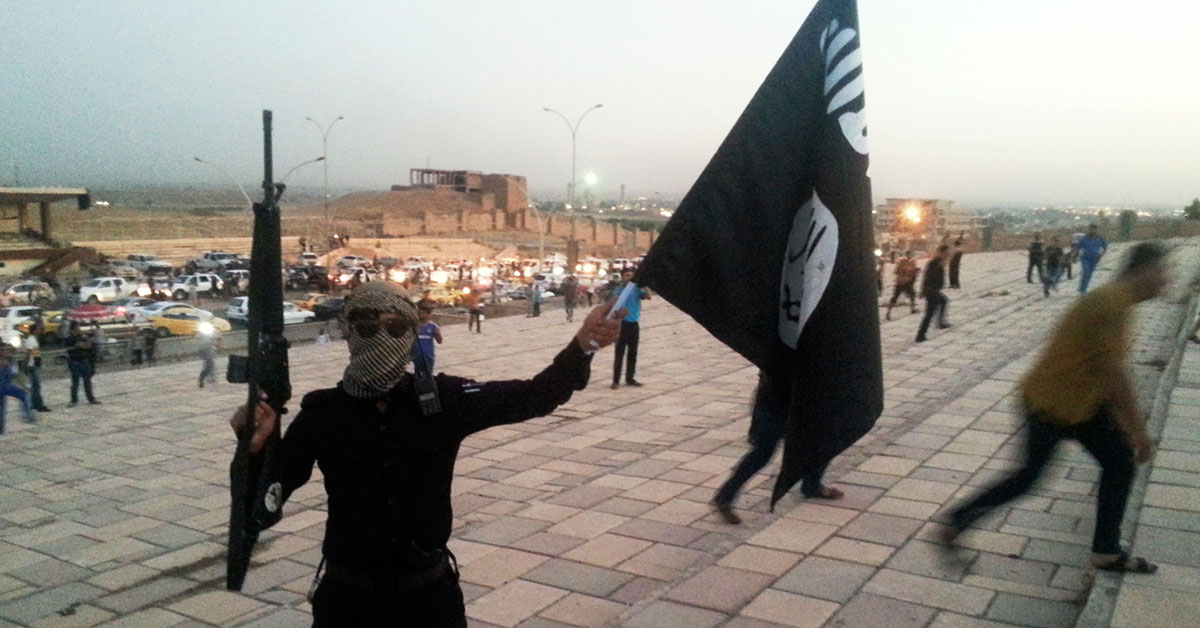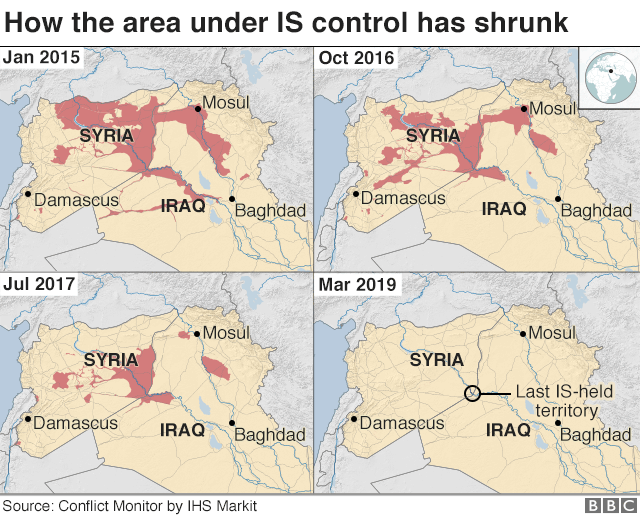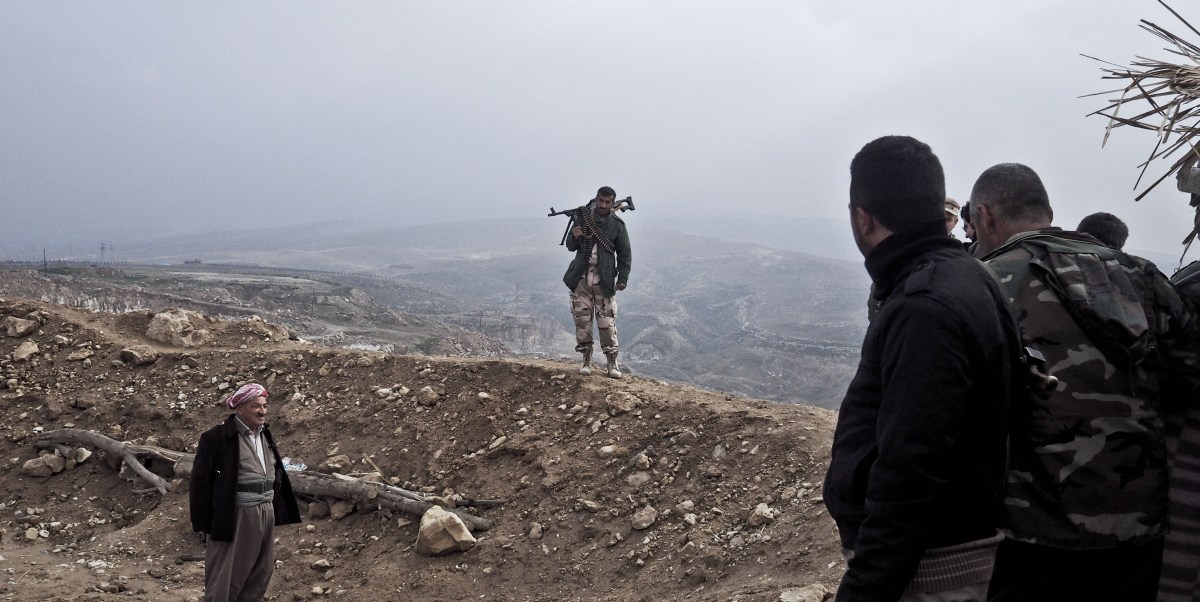SalarHaqq
SENIOR MEMBER

- Joined
- Dec 29, 2019
- Messages
- 4,550
- Reaction score
- 2
- Country
- Location
That image shows that US and Iran are supporting same elements in the region. Do you realize this?
Iran and the regime in Washington are adversaries and this reality is echoed by the political camps they're siding with across the region.
Assad regime provided space and route to Al-Qaeda affiliates to wreck havoc in Iraq:
During the early stages of the U.S. occupation of Iraq, the Syrian regime enabled the transit of radical Sunni Islamist fighters to the country, where they targeted Americans and mostly Iranian-backed Shiites.
The paper does not offer proof for its suggestion that fighters who entered Iraq from Syria were targeting Iranian-backed groups in particular. Moreover it's co-authored by a former American regime official and therefore to be taken with a grain of salt when it comes to Iran-related matters, considering the antagonism between Iran and the USA.
Here's another article from the same publisher (The New Yorker), authored this time by an award-winning, independent investigative journalist considered authoritative and most competent in his field. What he shows is that starting from around 2006 and with the goal of undermining Iran, the USA engaged in a policy which led to the development of sectarianist currents it used as proxies. It goes into much greater depth and is far better researched on this matter than the isolated sentence in the above quote.
A brief excerpt:
To undermine Iran, which is predominantly Shiite, the Bush Administration has decided, in effect, to reconfigure its priorities in the Middle East. In Lebanon, the Administration has cooperated with Saudi Arabia’s government, which is Sunni, in clandestine operations that are intended to weaken Hezbollah, the Shiite organization that is backed by Iran. The U.S. has also taken part in clandestine operations aimed at Iran and its ally Syria. A by-product of these activities has been the bolstering of Sunni extremist groups that espouse a militant vision of Islam and are hostile to America and sympathetic to Al Qaeda.
https://www.newyorker.com/magazine/2007/03/05/the-redirection
These Al-Qaeda affiliates came together to establish the notorious Al-Qaeda Network in Iraq (AQI), and this group sparked Shia - Sunni strife in Iraq with its misdeeds:
There's no actual evidence Zarqawi was based in Syria. If we go by unconfirmed claims from intelligence agencies, then we could as well accept Washington's allegation that Zarqawi found refuge in... Iran.
https://en.wikipedia.org/wiki/Abu_Musab_al-Zarqawi
To my knowledge no serious scholar has singled out the Syrian government as being the paramount party responsible for the formation of Al-Qaida in Iraq.
US-led forces fought and defeated AQI among other insurgent groups and managed to stabilize Iraq in 2011,
Serious sources indicate that the USA deliberately exploited the chaos caused by AQI and later "I"S. The article shared above represents a good start.
Further circumstantial evidence is offered by the study of neoconservative ideology and policy, as well as several policy papers published by Isra"el"i and American officials (Oded Yinon, Ralph Peters etc) openly advocating the dismantling of West Asian nation-states along ethnic and confessional lines.
But Syrian "terrorism export services" to Iraq continued with Al-Qaeda affiliates in Syria colluding with disgruntled elements in Iraq (Saddam loyalists) to launch ISIL movement in 2013:

Iraqi al-Qaeda and Syrian group ‘merge’
Website linked to Jabhat al-Nusra confirms move that is likely to alarm international backers of anti-Assad fighters.www.aljazeera.com
This article is reporting the 2013 merger between Syria's Jabhat al-Nusra and the Islamic State in Iraq. Jabhat al-Nusra was created in 2012 with the sole purpose of fighting the Syrian government, one of whose most bitter enemies it and its avatars have since remained.
Al-Nusra Front, also known as Front for the Conquest of the Levant, was a Salafi jihadist organization fighting against Syrian Ba'athist government forces in the Syrian Civil War. Its aim was to overthrow president Bashar al-Assad and establish an Islamic state in Syria.
https://en.wikipedia.org/wiki/Al-Nusra_Front#Structure
The Syrian government has nothing to do with the occurrence described in the paper. The phrase "Syrian "terrorism export services"" is therefore misplaced in this context.

How Saddam's fighters help Islamic State rule
From military victories to surveillance, former Baathists are a powerful factor in the rise and control of Islamic state.www.reuters.com

How Saddam's Former Soldiers Are Fueling the Rise of ISIS | FRONTLINE
As the radical jihadist group marches through Iraq, it is quietly utilizing a network of former members of Sadaam Hussein's army to help militarize its fighting force.www.pbs.org

Isis breach of Iraq-Syria border merges two wars into one 'nightmarish reality'
Jihadi fighters celebrate advance with slick propaganda, but its enemies are responding on both sides of frontierwww.theguardian.com

The Wars In Iraq And Syria Have Merged Into A Single Conflict
Iran and ISIS, the two major players in both countries, view the entire region as one battlefield.www.businessinsider.com

The Enemy Within: ISIS and the Conquest of Mosul on JSTOR
Tallha Abdulrazaq, Gareth Stansfield, The Enemy Within: ISIS and the Conquest of Mosul, Middle East Journal, Vol. 70, No. 4 (AUTUMN 2016), pp. 525-542www.jstor.org
Under these links, organizations are mentioned which fought against the Syrian government - not ones supported by it.
Syria and Iraq had deliberated on the possibility of merger in earlier times and ISIL movement was a bad immitation of this sentiment.
INot inspired by pan-Arab unification ambitions of the past but simply to the practical opportunity provided by the destabilization of two bordering nations, as a result of destructive military intervention by the USA and allies.
Former Iraqi Prime Minister Haider al-Ibadi - one of the leading figureheads in fight against ISIL in the Middle East - also pointed out that Syria was exporting terrorism to Iraq:
Our aim is to stop or to control regional conflicts. There is a conflict in the region, there is a huge conflict. You have Saudi Arabia on one side, probably eager to be a leader of the Islamic Sunni world. You have Iran on the other side who is eager to become [the leader of] the Shia Islamic world, or even beyond. You have Turkey, as well, competing for the leadership of the Muslim Sunni world. And here we are having conflict in Yemen, having conflict in Syria, and it’s been extended before to Iraq. In Iraq, we don’t want to be part of this conflict. We are looking after our own interest, and we think we are the victims of this conflict. What happened in Syria impacted us directly.
Look what happened with Daesh when they crossed the borders into Iraq. So, I think we are very eager to stop these regional conflicts. It’s tough. It happens to be we are here, Iraq is here. We cannot move it from the map. We are bordering Turkey, bordering Iran, bordering Saudi Arabia, bordering Jordan, Kuwait, Syria, of course. And we are here, we have to live with our neighbors…
Nowhere in this quote is al-Abadi blaming the Syrian government nor accusing it of exporting terrorism.
"I"SIS was simultaneously at war with Damascus and Baghdad.
When Syrian Civil War broke out in 2011, terrorists running amok in Syria colluded with Saddam loyalists in Iraq to seize Iraqi and Syrian lands for themselves:

Syria tasked "I"SIS with violently snatching Syrian land?
Haider al-Abadi told Americans that the only way to save Iraq is by putting an end to Syrian "terrorism export services."
What is the source for this quote?
Obama administration got the message and dispatched American forces to Iraq to support Iraqi government in its mission to defeat ISIL in the country (Operation Inherent Resolve), and this operation was also expanded to Syria with support of Kurd:
These realities are also touched upon in following article:

Israel May Decimate Hamas, but Can It “Win” This War?
The scale of the violence, death, and destruction has triggered alarm about a wider regional conflict.www.newyorker.com
Obviously the Iraqi government would request assistance from anyone it could against "I"SIS.
But this does not mean Washington's intervention was motivated by Baghdad's request alone. I maintain my description of USA policy in the region post-9/11.
Iran worked with Iraqi Popular Mobilization Forces to fight ISIL in Iraq.
Iran also worked with its allies in Syria to fight ISIL but as a secondary objective. The (Assad regime + Iran + Hezbollah + Russia) collective was working to defeat Syrian rebels in Syria who were opposing Assad regime.

While U.S.-Led Forces Dropped Bombs, Iran Waged Its Own Covert Campaign Against the Islamic State
Iran’s spies cheered U.S. bombings in the war against ISIS while covertly arming the Kurdish Peshmerga and penetrating the Islamic State’s leadership.theintercept.com
Iran could respond to ISIL movement earlier because US had left Iraq in 2011.
US could not come back and fight ISIL immediately.
"I"SIS kept welcoming unimpeded streams of recruits from across western Europe, including elements under surveilled by local intelligence agencies, who were able to cross multiple borders on auuthentic ID papers.
NATO member Turkey was allowing "I"SIS sympathizers and members to roam openly on its soil ("I"SIS t-shirts sold in Istanbul stores, known gathering places running and so on).
The USA could have dispatched forces to fight "I"SIS prior to the latter's 2014 summer offensive but chose not to. Even then American air strikes remained suspiciously restrained for some time. Their intensity increased parallel with gains recorded by Iranian-led forces.
I could go on but there's no point. Have stated and sufficiently substantiated my points already.
I understand that US and Iran have tensions but you are blaming the wrong side for creating ISIL. Assad regime is responsible for this mess.
This is your take and you cannot force it on people through censorship nor by slapping the "propaganda" label on dissenting commentary.
You participated in a discussion on this very subject at the Iranian section before, where apart from me several other users namely Hack Hook and raptor22 offered perfectly sound arguments in support of our view. A view which is fully covered by freedom of speech as well as by forum rules.
Readers can consult the respective sets of justifications furnished, and weigh on their own as to which is logically more convincing and factually better documented.
If anything, Iran has benefitted from American military operations in the Middle East:
1. Operation Iraqi Freedom to eliminate Saddam regime (2003 - 2011)
By an administration which had placed Iran on its so-called "axis of evil" meaning Iran was at risk of being next in the series of wars the Americans were launching.
Major USA troop deployment both at Iran's eastern and western borders constituted and were naturally treated as a serious threat.
Furthermore Washington never intended an Iran-friendly government to succeed Saddam. On the contrary, the USA systematically tried to have candidates opposed to Iran access power during elections in Baghdad.
That Iraq finally turned into a partner, Iran owes to her own successful policy, in particular to her ability to turn threats into opportunities as shahid Soleimani, one of the main architects of Iranian policy in Iraq put it.
2. Operation Inherent Resolve to eliminate ISIL (2014 - 2021)
After creating the conditions for the advent of "I"SIS and attempting to employ it as an instrument for the disruption of the Iranian-led Resistance Axis.
As highlighted, it was the fact that Iran and her allies were in the process of stopping "I"SIS in their tracks and driving them back which prompted Washington to intervene, so as to prevent Iran-friendly forces from reaping all the prospective benefits of victory over "I"SIS.
US have defeated two of the greatest threats to Iran in the region.
Certainly not to lend Iran a helping hand but for diametrically opposed reasons.
Last edited:



